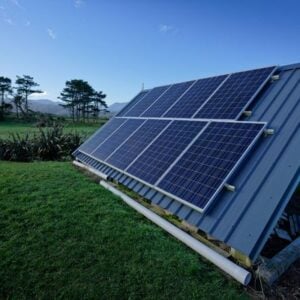Kenya’s clean energy startups led Africa’s July 2025 funding surge by securing 83% of the continent’s $550 million investment, marking a significant shift in the region’s startup ecosystem. This surge was primarily driven by two major Kenyan companies and highlighted a growing investor preference for sustainable solutions and debt financing. Meanwhile, Nigeria, historically Africa’s venture capital leader, raised only $58 million in equity during the same period, signaling ongoing challenges in its startup environment.
The $550 million raised in July represents a 50.6% increase from June and pushes total 2025 investments across Africa close to $2 billion, already surpassing the full-year total from 2024. Notably, 89% of July’s funding was through debt financing, a sharp rise from 28.5% in June, reflecting investors’ cautious strategies to balance risk and reward, especially in high-impact sectors like clean energy.
Kenya’s leadership stems from its long-term focus on renewable energy and sustainable development, supported by favorable government policies and a thriving innovation ecosystem. Key players like Sun King and d.light exemplify this success. Sun King closed a landmark $156 million securitisation deal—the largest outside South Africa in Sub-Saharan Africa—enabling clean energy access to 1.4 million low-income households and businesses. This deal, structured by global financial institutions and supported by commercial banks and development finance institutions, provides immediate capital while offering investors lower-risk returns.
d.light expanded its receivables financing by $300 million, allowing it to convert future customer payments into immediate cash to scale operations efficiently. This financing suits its pay-as-you-go solar model, providing essential working capital without waiting for slow customer payments. The strong investor confidence in these models underscores Kenya’s ability to attract large-scale funding.
Kenya’s success is supported by several factors, including a supportive policy environment, significant rural energy deficits, Nairobi’s status as an innovation hub, and a proven track record of scalable startups. These elements combine to create a robust market for clean energy solutions and related investments.
The shift toward debt financing across Africa reflects a maturing venture capital market that prioritizes lower-risk, predictable returns amid global economic uncertainties. Debt offers advantages such as non-dilution of equity for startups and targeted growth funding, making it particularly attractive for sectors with stable revenue models. The collaboration between development finance institutions and commercial banks has been key in unlocking larger capital pools for African startups.
In contrast, Nigeria’s equity funding challenges highlight broader economic and regulatory issues. Macroeconomic instability, policy uncertainty, and shifting investor sentiment have dampened Nigeria’s ability to attract large equity investments, especially in fintech, which once dominated its startup landscape. Nigeria’s low funding levels in July underscore the urgent need for economic stabilization, clear policies, and incentives to restore investor confidence.
Beyond funding numbers, Kenya’s clean energy investments promise transformative social and economic benefits. Access to reliable power empowers small businesses, improves health by reducing harmful kerosene lamp use, enhances educational opportunities, and supports environmental sustainability. These impacts demonstrate how strategic financing in critical sectors can drive inclusive growth.
Kenya’s approach to leveraging debt financing for clean energy could serve as a model for other African countries seeking to expand sustainable development while attracting investment. Meanwhile, Nigeria’s situation illustrates the importance of creating a stable economic and regulatory environment to sustain a vibrant startup ecosystem.
Overall, July 2025 marks a milestone in African startup funding, showcasing Kenya’s ascendancy and the continent’s evolving financial strategies. Despite challenges in some markets, Africa’s startup scene is growing more sophisticated, with diverse hubs, specialized sectors, and innovative funding mechanisms fueling economic growth and development across the region.







